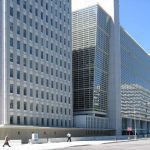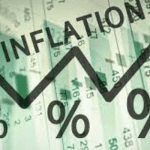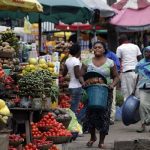According to the World Bank, Nigeria’s low economic growth and rising inflation will cause an additional 2.8 million people to live in poverty by the end of 2023.
The ‘Macro Poverty Outlook: Country-by-country Analysis and Projections for the Developing World’ report, which was just published, served as the basis for this.
It was reported that in July 2023, Nigeria’s high inflation hit a 17-year high of 24.1 percent year-on-year, in part due to rising food prices and the short-term effects of the fuel subsidy’s removal.
It claimed that despite a 725 basis point increase in the monetary policy rate since May 2022, the ongoing monetization of the fiscal deficit and congested transmission channels, which are further weakened by the central bank’s direct credit allocation, have had little effect on controlling inflation.
The global bank further declared that federal fiscal deficit has risen to 63 per cent higher between January and May 2023 than in the same period in 2022, due to increasing interest payments, higher capital spending ahead of the elections, and the continuous large cost of the fuel subsidy.
The impact of this is set to spike public debt to 45 per cent of GDP and keep debt service above total revenue in 2023. It said. “The fiscal financing need and the devaluation of the naira are expected to push the public debt to 45 per cent of GDP and keep the debt service above total revenues in 2023.
According to the World Bank, “As inflation declines and economic growth accelerates, the proportion of Nigerians living below the international poverty line is expected to peak in 2024 at 38.8% before gradually declining.”
According to the World Bank, Nigeria’s low economic growth and rising inflation will cause an additional 2.8 million people to live in poverty by the end of 2023.
The ‘Macro Poverty Outlook: Country-by-country Analysis and Projections for the Developing World’ report, which was just published, served as the basis for this.
It was reported that in July 2023, Nigeria’s high inflation hit a 17-year high of 24.1 percent year-on-year, in part due to rising food prices and the short-term effects of the fuel subsidy’s removal.
It claimed that despite a 725 basis point increase in the monetary policy rate since May 2022, the ongoing monetization of the fiscal deficit and congested transmission channels, which are further weakened by the central bank’s direct credit allocation, have had little effect on controlling inflation.
The global bank further declared that federal fiscal deficit has risen to 63 per cent higher between January and May 2023 than in the same period in 2022, due to increasing interest payments, higher capital spending ahead of the elections, and the continuous large cost of the fuel subsidy.
The impact of this is set to spike public debt to 45 per cent of GDP and keep debt service above total revenue in 2023. It said. “The fiscal financing need and the devaluation of the naira are expected to push the public debt to 45 per cent of GDP and keep the debt service above total revenues in 2023.
According to the World Bank, “As inflation declines and economic growth accelerates, the proportion of Nigerians living below the international poverty line is expected to peak in 2024 at 38.8% before gradually declining.”
According to the World Bank, Nigeria’s low economic growth and rising inflation will cause an additional 2.8 million people to live in poverty by the end of 2023.
The ‘Macro Poverty Outlook: Country-by-country Analysis and Projections for the Developing World’ report, which was just published, served as the basis for this.
It was reported that in July 2023, Nigeria’s high inflation hit a 17-year high of 24.1 percent year-on-year, in part due to rising food prices and the short-term effects of the fuel subsidy’s removal.
It claimed that despite a 725 basis point increase in the monetary policy rate since May 2022, the ongoing monetization of the fiscal deficit and congested transmission channels, which are further weakened by the central bank’s direct credit allocation, have had little effect on controlling inflation.
The global bank further declared that federal fiscal deficit has risen to 63 per cent higher between January and May 2023 than in the same period in 2022, due to increasing interest payments, higher capital spending ahead of the elections, and the continuous large cost of the fuel subsidy.
The impact of this is set to spike public debt to 45 per cent of GDP and keep debt service above total revenue in 2023. It said. “The fiscal financing need and the devaluation of the naira are expected to push the public debt to 45 per cent of GDP and keep the debt service above total revenues in 2023.
According to the World Bank, “As inflation declines and economic growth accelerates, the proportion of Nigerians living below the international poverty line is expected to peak in 2024 at 38.8% before gradually declining.”
According to the World Bank, Nigeria’s low economic growth and rising inflation will cause an additional 2.8 million people to live in poverty by the end of 2023.
The ‘Macro Poverty Outlook: Country-by-country Analysis and Projections for the Developing World’ report, which was just published, served as the basis for this.
It was reported that in July 2023, Nigeria’s high inflation hit a 17-year high of 24.1 percent year-on-year, in part due to rising food prices and the short-term effects of the fuel subsidy’s removal.
It claimed that despite a 725 basis point increase in the monetary policy rate since May 2022, the ongoing monetization of the fiscal deficit and congested transmission channels, which are further weakened by the central bank’s direct credit allocation, have had little effect on controlling inflation.
The global bank further declared that federal fiscal deficit has risen to 63 per cent higher between January and May 2023 than in the same period in 2022, due to increasing interest payments, higher capital spending ahead of the elections, and the continuous large cost of the fuel subsidy.
The impact of this is set to spike public debt to 45 per cent of GDP and keep debt service above total revenue in 2023. It said. “The fiscal financing need and the devaluation of the naira are expected to push the public debt to 45 per cent of GDP and keep the debt service above total revenues in 2023.
According to the World Bank, “As inflation declines and economic growth accelerates, the proportion of Nigerians living below the international poverty line is expected to peak in 2024 at 38.8% before gradually declining.”
According to the World Bank, Nigeria’s low economic growth and rising inflation will cause an additional 2.8 million people to live in poverty by the end of 2023.
The ‘Macro Poverty Outlook: Country-by-country Analysis and Projections for the Developing World’ report, which was just published, served as the basis for this.
It was reported that in July 2023, Nigeria’s high inflation hit a 17-year high of 24.1 percent year-on-year, in part due to rising food prices and the short-term effects of the fuel subsidy’s removal.
It claimed that despite a 725 basis point increase in the monetary policy rate since May 2022, the ongoing monetization of the fiscal deficit and congested transmission channels, which are further weakened by the central bank’s direct credit allocation, have had little effect on controlling inflation.
The global bank further declared that federal fiscal deficit has risen to 63 per cent higher between January and May 2023 than in the same period in 2022, due to increasing interest payments, higher capital spending ahead of the elections, and the continuous large cost of the fuel subsidy.
The impact of this is set to spike public debt to 45 per cent of GDP and keep debt service above total revenue in 2023. It said. “The fiscal financing need and the devaluation of the naira are expected to push the public debt to 45 per cent of GDP and keep the debt service above total revenues in 2023.
According to the World Bank, “As inflation declines and economic growth accelerates, the proportion of Nigerians living below the international poverty line is expected to peak in 2024 at 38.8% before gradually declining.”
According to the World Bank, Nigeria’s low economic growth and rising inflation will cause an additional 2.8 million people to live in poverty by the end of 2023.
The ‘Macro Poverty Outlook: Country-by-country Analysis and Projections for the Developing World’ report, which was just published, served as the basis for this.
It was reported that in July 2023, Nigeria’s high inflation hit a 17-year high of 24.1 percent year-on-year, in part due to rising food prices and the short-term effects of the fuel subsidy’s removal.
It claimed that despite a 725 basis point increase in the monetary policy rate since May 2022, the ongoing monetization of the fiscal deficit and congested transmission channels, which are further weakened by the central bank’s direct credit allocation, have had little effect on controlling inflation.
The global bank further declared that federal fiscal deficit has risen to 63 per cent higher between January and May 2023 than in the same period in 2022, due to increasing interest payments, higher capital spending ahead of the elections, and the continuous large cost of the fuel subsidy.
The impact of this is set to spike public debt to 45 per cent of GDP and keep debt service above total revenue in 2023. It said. “The fiscal financing need and the devaluation of the naira are expected to push the public debt to 45 per cent of GDP and keep the debt service above total revenues in 2023.
According to the World Bank, “As inflation declines and economic growth accelerates, the proportion of Nigerians living below the international poverty line is expected to peak in 2024 at 38.8% before gradually declining.”
According to the World Bank, Nigeria’s low economic growth and rising inflation will cause an additional 2.8 million people to live in poverty by the end of 2023.
The ‘Macro Poverty Outlook: Country-by-country Analysis and Projections for the Developing World’ report, which was just published, served as the basis for this.
It was reported that in July 2023, Nigeria’s high inflation hit a 17-year high of 24.1 percent year-on-year, in part due to rising food prices and the short-term effects of the fuel subsidy’s removal.
It claimed that despite a 725 basis point increase in the monetary policy rate since May 2022, the ongoing monetization of the fiscal deficit and congested transmission channels, which are further weakened by the central bank’s direct credit allocation, have had little effect on controlling inflation.
The global bank further declared that federal fiscal deficit has risen to 63 per cent higher between January and May 2023 than in the same period in 2022, due to increasing interest payments, higher capital spending ahead of the elections, and the continuous large cost of the fuel subsidy.
The impact of this is set to spike public debt to 45 per cent of GDP and keep debt service above total revenue in 2023. It said. “The fiscal financing need and the devaluation of the naira are expected to push the public debt to 45 per cent of GDP and keep the debt service above total revenues in 2023.
According to the World Bank, “As inflation declines and economic growth accelerates, the proportion of Nigerians living below the international poverty line is expected to peak in 2024 at 38.8% before gradually declining.”
According to the World Bank, Nigeria’s low economic growth and rising inflation will cause an additional 2.8 million people to live in poverty by the end of 2023.
The ‘Macro Poverty Outlook: Country-by-country Analysis and Projections for the Developing World’ report, which was just published, served as the basis for this.
It was reported that in July 2023, Nigeria’s high inflation hit a 17-year high of 24.1 percent year-on-year, in part due to rising food prices and the short-term effects of the fuel subsidy’s removal.
It claimed that despite a 725 basis point increase in the monetary policy rate since May 2022, the ongoing monetization of the fiscal deficit and congested transmission channels, which are further weakened by the central bank’s direct credit allocation, have had little effect on controlling inflation.
The global bank further declared that federal fiscal deficit has risen to 63 per cent higher between January and May 2023 than in the same period in 2022, due to increasing interest payments, higher capital spending ahead of the elections, and the continuous large cost of the fuel subsidy.
The impact of this is set to spike public debt to 45 per cent of GDP and keep debt service above total revenue in 2023. It said. “The fiscal financing need and the devaluation of the naira are expected to push the public debt to 45 per cent of GDP and keep the debt service above total revenues in 2023.
According to the World Bank, “As inflation declines and economic growth accelerates, the proportion of Nigerians living below the international poverty line is expected to peak in 2024 at 38.8% before gradually declining.”














